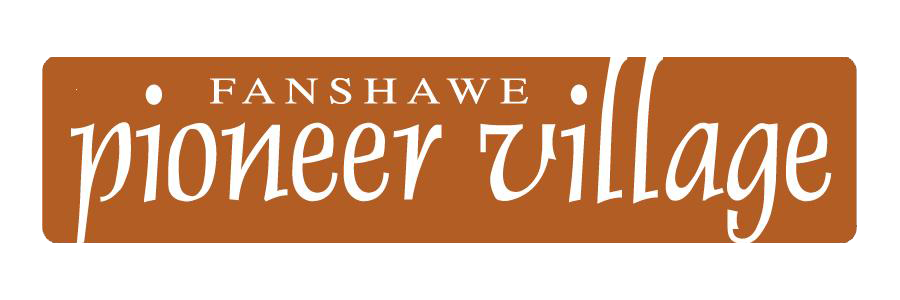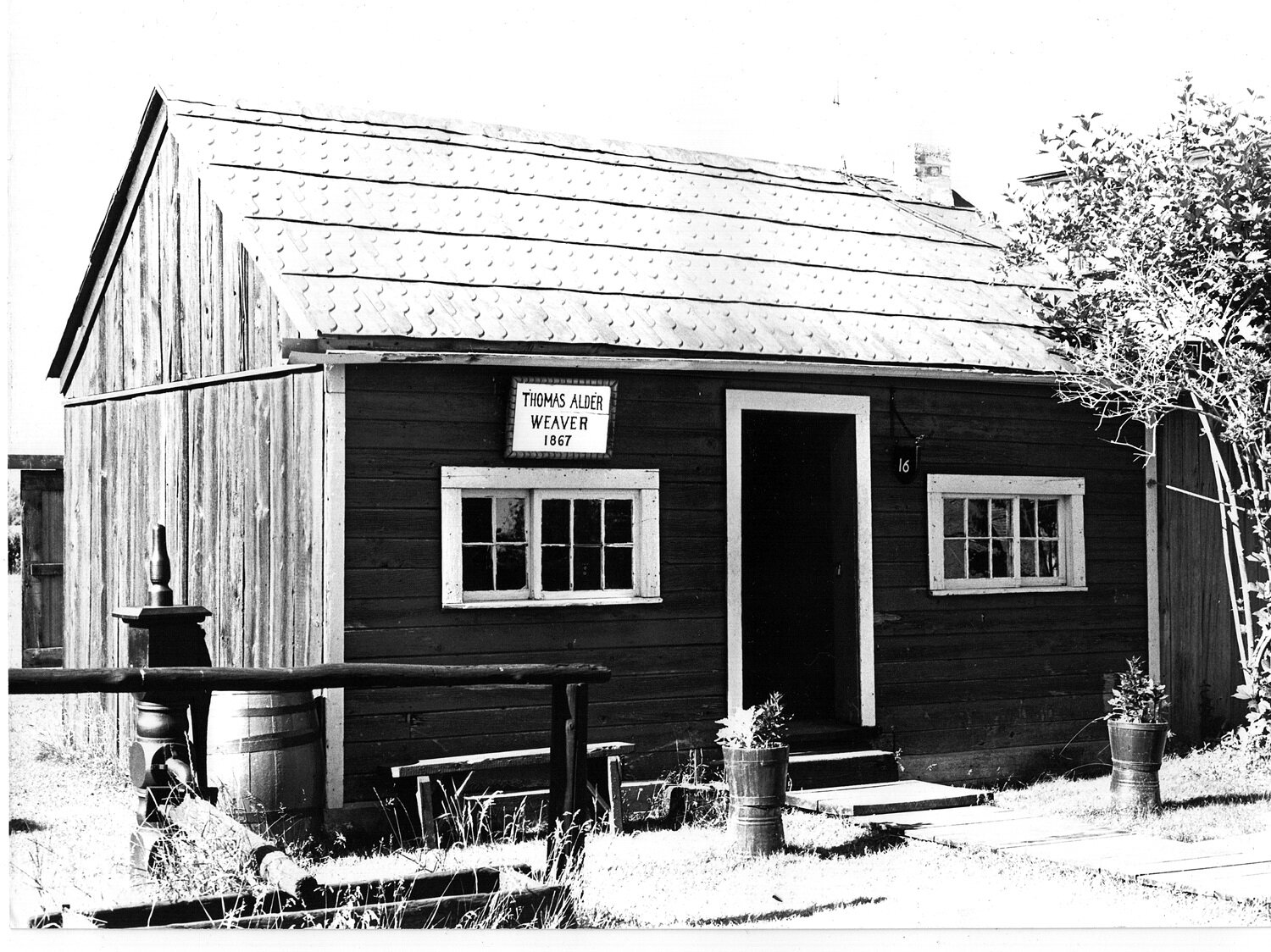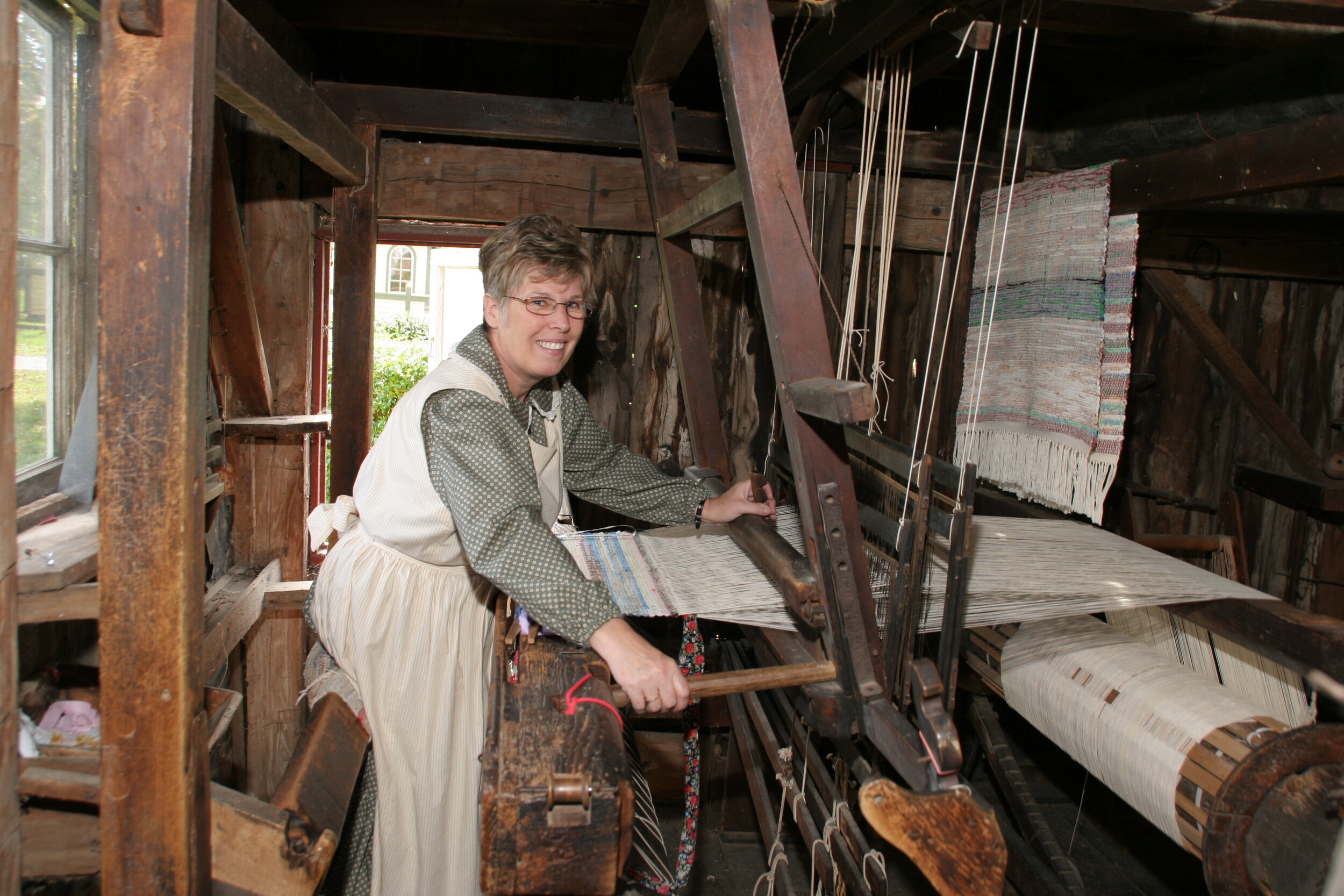Alder’s Weaving Shed
Original Building
London Township
Middlesex County
Circa 1857
Thomas Alder, maternal grandfather to the Village’s first curator Wilfrid Jury, immigrated to Canada from England in 1857 and purchased land just north of Melrose in the former London Township. In addition to his meager baggage, Thomas brought with him a steel loom harness. Although he planned to establish himself as a farmer, he knew that the long, cold winters provided little opportunity for farming income. He had apprenticed as a weaver in Gloucestershire before emigrating to Canada and planned to supplement his income during the winter months with the weaving of rugs, horse blankets and cloth.
Thomas Alder built a weaving shed, even before constructing a house, with logs cleared from his property. Inside, a work bench along one wall served as both a workspace and a bed, while a wood stove provided heat and a place to cook. He built his barn loom directly into the structure, having made the loom’s framework and whittled bobbins and reels himself. Thomas bought one piece of furniture for his new dwelling, a wooden armchair from Ferguson’s Furniture Factory in Melrose.
Thomas Alder died in 1906, at which time his son John took over the farm and weaving shop. The last commercial project was taken off the loom just before 1939. Throughout the 1950s John did weave intermittently — in fact a partly woven rug was still on the loom when the shop was moved to the Village in 1962.
In the days when Thomas Alder was operating his small weaving shop, cash was not always available in rural villages, and homemade or homegrown products were often traded for store-bought goods. Thomas Alder accepted livestock for his wares and customers are known to have paid in geese, calves, pigs and chickens. Once, Thomas even received payment in the form of a colt. Imagine, trading a horse for a rug!
Business and Industry
By the turn of the century, small local businesses were competing against mass production and rapid industrialization in Canada.
Towns began to see a decline in their commercial importance as the City of London grew, but they continued to be an important support for rural communities. In many cases, small and rural businesses transitioned to providing repairs rather than building things in order to maintain relevance.
Industrialization also resulted in a change to the perceived value of labour. With mechanization the “worth” of someone's time and skills, and who could complete certain jobs, began to change.










